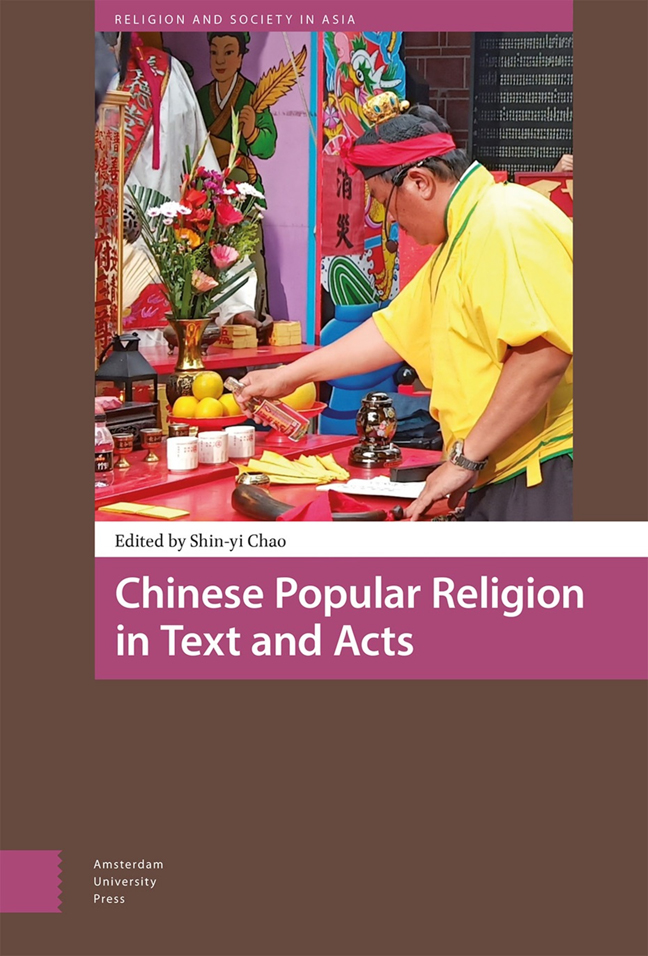Book contents
- Frontmatter
- Contents
- List of Figures and Tables
- Acknowledgements
- Dedication
- Introduction: Text, Acts, and Traditionalization: Performing Chinese Popular Religion
- Section One Texts And Acts
- Section Two Scriptures and Rituals
- Section Three Saints’ Legends and Gods’ Lore
- Section Four Temple Festivals and Pilgrimages
- Index
8 - Assimilation by Names: A Mechanism of Pantheon Development in Local Religion
Published online by Cambridge University Press: 26 March 2024
- Frontmatter
- Contents
- List of Figures and Tables
- Acknowledgements
- Dedication
- Introduction: Text, Acts, and Traditionalization: Performing Chinese Popular Religion
- Section One Texts And Acts
- Section Two Scriptures and Rituals
- Section Three Saints’ Legends and Gods’ Lore
- Section Four Temple Festivals and Pilgrimages
- Index
Summary
Abstract
In Hongdong, Shanxi Province, there is a group of deities who share the same ending in their titles, Erlang 二郎 (“second youngster/bro”). Within this group, an individual deity could be referred to by different titles and a title could be applied to different individual members (with distinct hagiographies and iconographies). This relatively confusing title-and-identity association did not derive from misidentifications but resulted from a complicated local mechanism of naming deities. This mechanism, developed in oral tradition, allows the locals to manipulate their gods’ identities and status. Supplementing ethnology with epigraphy, the changing name-designatum association of several Erlang deities across Hongdong County can be traced over centuries. Through fusion, lengthening, abridging, or adopting gods’ appellations, villagers have been assimilating and promoting deities as well as apotheosizing new ones. Consequently, the local pantheon is in constant revision.
Keywords: Erlang, Yang Jian, indigenous deities (difangxing shenling 地方性神靈), naming mechanism, deities with same names, Hongdong County of Shanxi
I. Introduction
When they interpret popular religion, historians emphasize the structural effects created by politics, economics, and demographic change, while scholars in religious studies look at adoption and adaptation between institutional religion and popular piety. From the perspective of folklore studies, orality is one of the critical factors in molding and redirecting people’s beliefs. This essay will explore the influence of oral communication on transmission and assimilation of deities and their worship in rural North China, with a focus on the transformation of deities’ names. Written and visual communication such as stelae, murals, and statues will also be drawn on to provide historical information and supportive materials.
Hongdong 洪洞 County is located in southwestern Shanxi Province in northern China. I have conducted field work on folklore in the area. There, a particular expression, “seventy-two erlang” (qishier erlang 七十二二郎) is widely used to indicate a type of indigenous deity, categorially called “the erlang” 二郎 (literally, the second youngsters or second brothers). The number seventy-two in the expression is a figure of speech for “many.” Altogether, there are about twenty erlangs that the locals have named. Generally speaking, they have the look of young males, and their names are formed in a pattern of four characters ending in erlang. The worship of the erlangs has spread across villages and towns in Hongdong County.
- Type
- Chapter
- Information
- Chinese Popular Religion in Text and Acts , pp. 189 - 208Publisher: Amsterdam University PressPrint publication year: 2023



